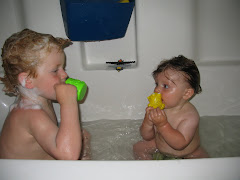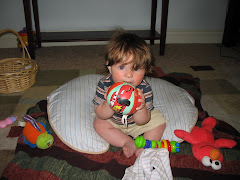NURTURING
Nurturing
Nurturing plays a powerful and lasting role in a child’s emotional, spiritual, cognitive, and physical development. It’s all about creating balance so our children can grow up healthy in every way—mind, body, heart, and soul. When we nurture our children, we are doing more than meeting their daily needs. We are shaping how they see themselves, how they understand the world, and how they learn to connect with others. We are helping form the foundation for their identity, emotional security, and their ability to love, serve, and lead throughout their lives.
There are so many ways we can nurture our children. One of the most basic is through physical care—making sure their needs for food, rest, safety, and comfort are consistently met. But nurturing also means providing emotional support, being available to offer love, affection, and reassurance, especially during difficult moments. Children need to feel that they are deeply loved, not just when things are going well, but especially when they’re struggling. Another important way to nurture is through learning and growth opportunities. This means creating chances for our kids to explore their interests, learn new skills, and engage in activities that support their talents. It could be something simple like reading a book together, encouraging creativity through art or music, or helping them practice a sport or hobby they enjoy. Responsive caregiving is also essential. This is when we’re really tuned in to our children—paying attention to their cues, listening to their words and body language, and responding in ways that make them feel seen and understood. When we respond instead of react, we build trust and help our children feel safe. We also nurture through positive reinforcement—noticing and praising the good we see in our children. Whether it’s kindness, effort, responsibility, or creativity, recognizing these things helps children feel valued and encourages more of that behavior. Clear communication is another nurturing tool. It’s important to create a home environment where children feel safe to express themselves openly. They need to know their voices matter. That doesn’t mean we agree with everything, but we allow space for healthy conversations, even when the topics are hard. Spending quality time with our kids is one of the most meaningful forms of nurturing. Just being with them, whether it’s playing, talking, going on a walk, or sharing a meal, builds connection. We don’t have to do grand things—it’s the little moments of undivided attention that stick. We also nurture by setting boundaries. Children feel safer when they know what’s expected of them. Clear rules and limits give structure, but we should also be flexible and understanding when needed. Boundaries with love help children grow. Finally, we nurture by promoting independence. It’s not about controlling every step but instead encouraging our kids to make choices, solve problems, and become confident in who they are. When we allow space for them to develop their sense of self, we send the message that we believe in them.
Nurturing is absolutely vital for healthy brain development and secure attachment. When children feel nurtured, they build strong relationships, develop a healthy sense of self-worth, and learn how to regulate emotions. They feel safe, and that safety gives them the confidence to explore, learn, and grow. Nurturing helps children become more resilient in the face of stress and helps set them up to thrive both now and in the future.
Nurturing doesn’t always come easily. Families face real challenges—stress, trauma, financial struggles, or lack of support systems—that can make it hard for parents to be emotionally present. When parents are overwhelmed, tired, or unsupported themselves, it’s difficult to show up in nurturing ways. This is why self-care and support matter so much. Parents need to take care of their own emotional and physical well-being so they can care for their children in the best way possible.
Some simple but powerful ways to be more nurturing include creating a loving and positive home environment, validating our children’s feelings, being patient when they’re struggling, and reaching out for help from family or professionals when we need it.
Dr. John Gottman, a researcher from the University of Washington and author, did a 20-year study with 119 families and found that the greatest parenting successes came when parents were present for their children during moments of emotional distress. These parents did not tell their kids what to feel—they helped them name their emotions and guided them in calming their nervous systems. This approach is called emotion coaching.
Emotion coaching means being aware of your child’s feelings, seeing emotions as opportunities to connect and teach, listening with empathy, helping them label their emotions, and then setting limits while also problem-solving. It’s important to say yes to emotions but not necessarily all behaviors. For example, it’s okay to feel angry, but not okay to hit. This kind of nurturing helps kids learn emotional intelligence, which is a crucial skill for life.
There’s a great clip from the movie Inside Out that illustrates this. In the scene, Sadness comforts Bing Bong by simply listening and validating his feelings. This allows him to process the emotion and move forward. That’s what our kids need from us too.
When we nurture our children in this way, we help them shift from reactivity to receptivity—a place where they can learn and grow. At birth, a child’s “downstairs brain” (instincts and survival responses) is already functioning, but the “upstairs brain” (reasoning, empathy, decision-making) is still developing. Through nurturing experiences and secure relationships, we help build and strengthen that upstairs brain.
In the end, nurturing our children—loving them, connecting with them, teaching them through our presence—helps them develop an internal compass. They become individuals with empathy, confidence, and a strong conscience. That is the kind of legacy we want to leave as parents.
REFERENCES:
Gottman, J. M., & DeClaire, J. (1997). Raising an emotionally intelligent child: [The heart of parenting]. Simon & Schuster.
Pixar. (2016, June 17). Inside Out movie clip: Sadness comforts Bing Bong [Video]. YouTube. https://www.youtube.com/watch?v=GgQBPSECgZg
Siegel, D. J., & Bryson, T. P. (2014). No-drama discipline: The whole-brain way to calm the chaos and nurture your child’s developing mind. Bantam Books.


















No comments:
Post a Comment